According to PWC Global M&A Industry Trends: 2022 Outlook, global mergers and acquisitions (M&A) have hit new highs in 2021.
There were 62,000 deals globally up 24% from the year before and 130 mega deals of deal size more than US$5B. The M&A flurry was powered by intense demand for technology, digital and data-driven assets, and the pent-up demand from 2020 possibly due to the limited business activity during the Covid period.
No one can accurately predict what will happen in the future but with companies across all industries needing technology and flushed with abundance capital and projects in hand, PWC expects that the global M&A will continue to grow, albeit with current challenges existing.
What about M&A locally?
Singapore’s M&A activity appears to mirror the positive sentiments globally.
The Business Times reported in September 2021 that despite ongoing Covid-19 pandemic headwinds, M&A activity within Singapore and the region is expected to remain robust, boosted by pent-up demand from 2020, supportive financing markets and overall strong market sentiment, particularly towards tech and high-growth industries.
What is Mergers & Acquisition?
The phrase “mergers and acquisition” or “M&A” in short is a sexy, descriptive definition to explain the potential or expected growth of a company and the various methods of growth understood by many simply by the use of the phrase.
There is no legal definition to the phrase but there are subtle differences to these terms.
In a merger, the companies are coming together to combine or share resources to achieve common objectives.
An acquisition suggest a more arms’ length deal, with the target firm’s shareholders ceasing to be owners of the target.
The goal of the M&A company is to increase the share price of the firm and it does so by various methods.
The growth can be internal or organic by way of acquiring or merging with another legal entity or it could be by way of asset swaps, financial restructuring, operational restructuring.
The phrase “M&A” can also be applied loosely where the growth is by way of business or strategic alliances. For example, companies entering into joint ventures, licensing or a company franchising its business system, methodology and brand name to expand its reach and markets.
In the business sense, mergers and acquisitions can accelerate achievement of several corporate objectives i.e.
- Removes excess capacity;
- Enters new markets and countries;
- Expands product’s variety or customer base;
- Able to acquire brands, technology and intellectual property
- Removes competition and promotes consolidation in a particular industry.
M&A from the Legal Angle is Completely Different
Lawyers think in terms of the deal whether it is a share deal or an asset deal. Questions that lawyers will ask, sometimes have nothing to do with the commercial considerations that managers have to think about in an M&A.
A M&A lawyer will ask if it is a public or private M&A as there are different rules and compliance issues to be met. Typical questions would be:
- How is the transaction financed whether it is done with share swaps or direct injection of capital or would the company be seeking re-financing of the target company’s assets post-closing.
- Is the deal an expression of interest, an auction process or a private deal based on one-on-one negotiation either directly or through a M&A broker or professional.
- The lawyer would have to consider if he/she is acting for the buyer or the seller as there are different considerations and expectations which would have to be fulfilled in any transaction e.g. in seeking vendor’s warranties or securing payment schedules or surety for payment from the purchasers in a transaction.
- What are the physical documents or conditions to be fulfilled on completion that the vendor needs to deliver to the purchaser.
The purchaser may have carried out due diligence of the target company and required the vendors to provide a full disclosure letter of issues which could affect the purchase price.
There are consequences for non-compliance of the terms and conditions and a breach of the terms may result in costly litigation between vendors and purchasers unless issues are addressed and diffused before the M&A exercise.
While the businessperson thinks about investing for strategic synergy or financial investment or the ways to grow the topline of its company, the lawyer’s mind is focussed on the acquisition process.
The Acquisition Process
The acquisition process could start as early as the search for the right target company where the lawyers would assist in the drafting of the Memorandum of Understanding, Non-Disclosure Agreement or setting out the terms for the Letter of Intent on a potential acquisition of a target company.
It has become more common that companies engage more specialised professionals including lawyers to be involved in the due diligence exercise and/or to evaluate the information obtained from the information gathering stage.
Lawyers are almost always involved in the negotiations of the terms and conditions acceptable to both parties and do sometimes (all in the interest of protecting the client) get carried away when it comes to not agreeing to certain terms and conditions.
Ultimately, the vendors and purchasers’ primary objective is to seal the deal but be protected from entering a bad deal or overpaying for an asset in a company. Imagine a new owner saddled with debts and contingent liabilities unforeseen from a due diligence exercise and this could sink the new owner’s prospects of successfully continuing the target business.
To avoid a whole host of issues, lawyers then get involved in a tug-of-war in the terms and conditions to ensure that every possible situation, foreseeable or unforeseeable, is covered in a Sale and Purchase agreement. Sometimes, if a lawyer does not understand the commercial considerations or carefully assesses the risk with the businessperson, the lawyer may well be the “bottleneck” to foil the deal.
Do I Need a M&A Lawyer?
An M&A lawyer in Singapore or less specifically, a corporate lawyer is necessary to get involved with you from the beginning to avoid the many pitfalls there are in the acquisition process.
To an untrained person, the devil is in the details.
You could enter into a MOU and realise that there are obligations imposed on you which you did not articulate or anticipate in your discussions.
You could have signed a letter of intent but one where there was a non-refundable deposit which you did not realise would be forfeited if you chose to prematurely end discussions.
You could, unknowingly have accepted the terms and conditions found in your vendor’s warranties which extended your liability to beyond your knowledge.
If you are a straightforward businessperson where paperwork and documents are your least favourite part of your business or if your mode of communication is not usually in the English language, all the legal jargon could confuse and frustrate you.
The combinations for making an error are many. There are many pitfalls and it always encouraged that you seek professional help. It is not only about choosing a lawyer whom you have worked with before but a lawyer who is specialised in corporate and M&A matters and seen such transactions regularly.
Why & How Can I Choose a Good Mergers & Acquisition Lawyer in Singapore?
- Choose a corporate, business or a lawyer familiar with transactional matters. Other lawyers simply do not have the knowledge, skill or judgment or experience to handle your mergers and acquisitions.
- Choose a lawyer whose law practice does a significant part of their work in corporate and dispute resolution. If you go to a lawyer who does such work only incidentally, you are less likely to get an expert in the area.
- Choose a lawyer who wants to help you avoid unnecessary administrative costs by being cost-conscious. Discuss in advance what would be the expected disbursements and let the lawyer be transparent with you on the costs.
- Choose a lawyer you trust. Nothing is more important in a lawyer/client relationship than having a lawyer you trust.
- Choose a lawyer who provides excellent service. Anything less is not acceptable.
- Choose a lawyer who will answer all your questions. You will not be able to make good decisions if your questions remain unanswered.
- Choose a lawyer who offers you a complimentary telephone consultation. Shouldn’t you be able to speak with the lawyer before you decide whether to engage him or her?
Concluding Comments
With mergers and acquisitions being a likely growth area for businesses, companies should consider what is the best model for them to grow.
You may choose to handle a deal on your own but at least be aware of the pitfalls before signing any NDA, MOU or Sale and Purchase agreement. You may be familiar with what to expect from a business perspective but your corporate lawyer will help you see if from a risks assessment basis.
Choosing the right corporate or business lawyer sometimes means speaking with new lawyers who have the right skills and knowledge in that area. You would want a person who has the expertise but also someone you trust. You would want a lawyer who is transparent in what you should expect in the process. Don’t be afraid to ask questions, clarify on costs and disbursements and gauge by whether they offer complimentary consultation to address your initial concerns.







